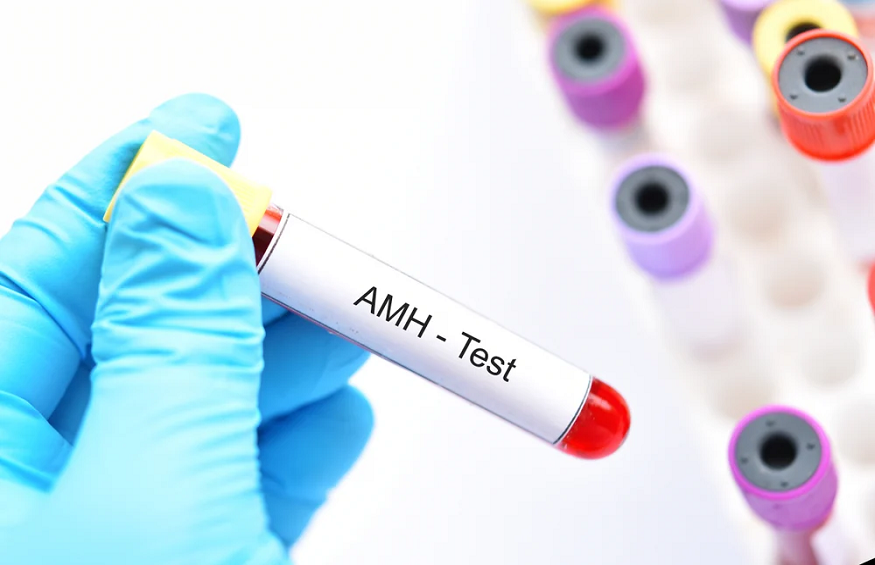Many women are familiar with the term AMH, or Anti-Mullerian Hormone. This hormone is produced by the cells in your ovaries and is a key indicator of your ovarian reserve. In other words, it can give us insight into how many eggs you have left! Here’s what you need to know about the AMH blood test. The AMH Blood test blood test is a new fertility test that is becoming increasingly popular. This test measures the amount of AMH in a woman’s blood. AMH is produced by the cells that surround the eggs in the ovaries (the follicles). The more follicles a woman has, the higher her AMH level will be. A high AMH level indicates that a woman has many follicles and is likely to respond well to fertility treatments. A low AMH level indicates that a woman has a small number of follicles and may have difficulty conceiving. The AMH blood test is used to predict a woman’s response to fertility treatment, to diagnose premature ovarian failure, and to select the best fertility treatment for a woman with decreased ovarian reserve. The test is also used to monitor ovarian response during IVF cycles.
What is the AMH Blood Test?
The AMH blood test (Anti-Mullerian Hormone) is used to measure the level of AMH in your blood. This hormone is produced by the cells in your ovaries and is a key indicator of your ovarian reserve. In other words, it can give us insight into how many eggs you have left! The AMH blood test is a simple and non-invasive way to measure your ovarian reserve.
Why is the AMH Blood Test important?
The AMH blood test is important because it can give us an indication of your fertility potential. For example, if your AMH levels are low, it may mean that you have a lower chance of conceiving naturally. On the other hand, high levels of AMH may indicate that you have a higher chance of conceiving naturally. The information from the AMH blood test can be used to make decisions about your fertility treatment options.
How do I get an AMH Blood Test?
You can ask your doctor for an AMH blood test. The test is typically covered by insurance and only takes a few minutes to complete.
How Is the Test Performed?
The AMH blood test is performed using a small sample of blood taken from a vein in the arm. The sample is then sent to a laboratory for analysis.
What Are the Normal Results?
The normal results for an AMH blood test are as follows:
Age 20-29: 1.2-8.0 ng/mL
Age 30-39: 0.7-6.8 ng/mL
Age 40-49: 0.3-3.2 ng/mL
Age 50 and older: 0.1-1.4 ng/mL
Pregnancy: Not detectable
Post menopause: Not detectable
Note: ng/mL stands for nanograms per millilitre; mL stands for millilitre.
If you are not sure what your results mean, talk to your doctor or healthcare provider.
What Do Abnormal Results Mean?
An abnormal result on men’s health may be due to any of the following conditions: Poor response to fertility treatment Premature ovarian failure Decreased ovarian reserve Polycystic ovary syndrome Note: A high AMH level may also be seen in women with polycystic ovary syndrome (PCOS). PCOS is a condition that affects the ovaries and can cause problems with fertility, among other things. If you have PCOS, you may have high levels of androgens (male hormones) in your body, which can interfere with ovulation (the release of an egg from the ovary). If you have PCOS and are trying to conceive, talk to your doctor or healthcare provider about treatment options. You may need medication to help you ovulate so that you can become pregnant.”); An abnormal result may also be due to any of the following conditions: Poor response to fertility treatment Premature ovarian failure Decreased ovarian reserve Polycystic ovary syndrome Note: A high AMH level may also be seen in women with polycystic ovary syndrome (PCOS). PCOS is a condition that affects the ovaries and can cause problems with fertility, among other things. If you have PCOS, you may have high levels of androgens (male hormones) in your body, which can interfere with ovulation (the release of an egg from the ovary). If you have PCOS and are trying to conceive, talk to your doctor or healthcare provider about treatment options. You may need medication to help you ovulate so that you can become pregnant.”); An abnormal result on an AMH blood test may indicate one of several underlying health conditions.”); If your results are abnormal, talk to your doctor or healthcare provider about what they might mean for your health.”).
Conclusion:
The AMH blood test is a simple and non-invasive way to measure your ovarian reserve. It’s an important test for women who want to conceive naturally, as it gives us an indication of your fertility potential. If you’re interested in getting an AMH blood test, test now at Welzo!
 Best Home Remedies for Cough Relief
Best Home Remedies for Cough Relief  How to Promote Your Pharmacy Online
How to Promote Your Pharmacy Online  Gut Health and Inflammation: Unveiling the Path to Better Wellness
Gut Health and Inflammation: Unveiling the Path to Better Wellness 
